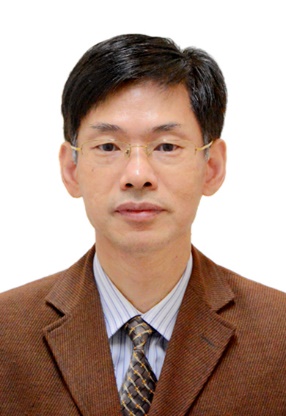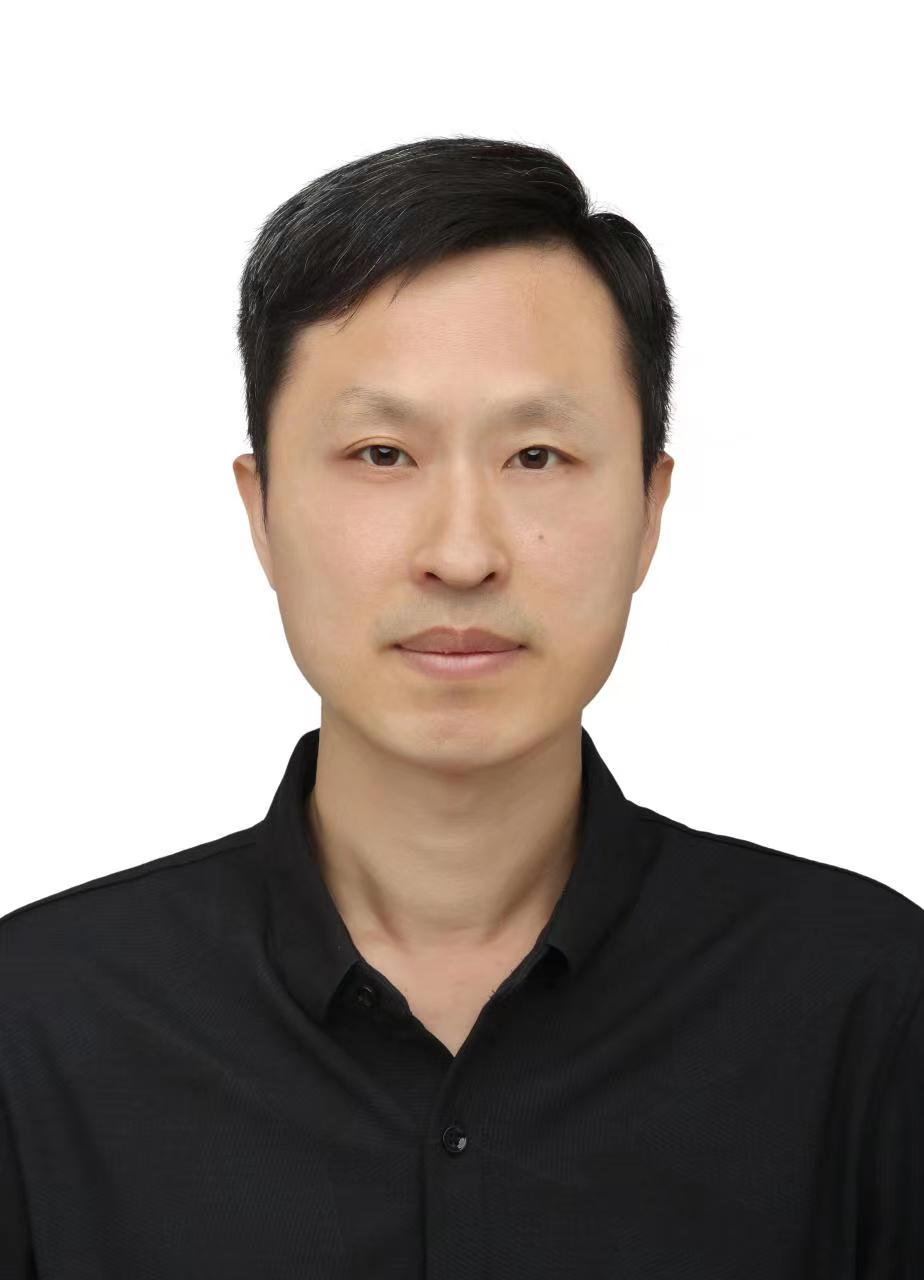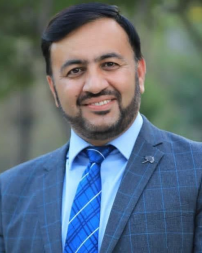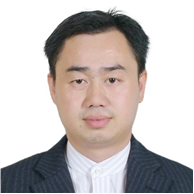
Keynote Speakers

Prof. Zhengkui Li
Nanjing University, China
Biography:
Zhengkui Li, a full professor and doctoral supervisor in the School of the Environment at Nanjing University, graduated from its Department of Chemistry in 1982 and subsequently completed his PhD studies at the Nanjing Institute of Geography & Limnology, Chinese Academy of Sciences, between 1997 and 2000. Between 1995 and 1996, he served as a visiting scholar at both the Technical University of Berlin and Leipzig University in the Federal Republic of Germany. His primary research interests encompass the photocatalytic degradation of emerging contaminants and ecological engineering methodologies for water treatment. He has led numerous projects funded by the National Natural Science Foundation of China, the National Key Basic Research Program, and significant water pollution control initiatives spanning the National 11th to 13th Five-Year Plans. Boasting over 50 research articles in SCI Zones I, II, and III, as well as 40 articles in Chinese core journals to his credit, he holds 35 authorized national patents. Professor Li is recognized as an expert in the National Science and Technology Award Expert Database, a reviewer for innovative talent evaluations at the Ministry of Science and Technology, and a peer reviewer for the National Natural Science Foundation of China. He also serves as an expert in the science and technology departments of the Anhui, Hebei, Shandong, Guizhou, Guangdong, and Fujian provinces.
Speech Title: Microbially Driven Nitrogen Loss and Retention in Riparian Zones and Their Response to Anthropogenic Disturbances

Prof. Baoyou Liu
Hebei University of Science & Technology, China
Biography:
Baoyou Liu, male, born in February 1973, doctoral degree. He has presided over and completed 1 project of Provincial Natural Fund, 1 project of National Natural Science Foundation of China, 7 projects of Hebei Science and Technology Tackling Program, and 1 research result of Hebei Mountain Entrepreneurship Award. He has applied for 11 invention patents, 8 of which have been authorized, and published more than 30 academic papers, more than 20 of which have been indexed by SCI or EI. At present, he is responsible for 3 vertical and horizontal projects, with more than 200,000 yuan of disposable scientific research funds. The main research direction is green chemistry and application technology, including the preparation and application of ionic liquids and photoelectric material intermediates.
Speech Title: Research on the Application of Eutectic Solvents in Green Chemical Industry and Preparation of Nanomaterials

Prof. Muhammad Ishtiaq Ali
University Islamabad, Pakistan
Biography:
Prof. Dr. Muhammad Ishtiaq Ali, a distinguished scholar and administrator at Quaid-i-Azam University (QAU), Islamabad, stands at the forefront of applied and environmental microbiology, pioneering transformative research in bioremediation, bioenergy, and sustainable waste-to-resource technologies. With a Ph.D. in Microbiology (QAU) and postdoctoral training at the University of New South Wales, Australia, his career spans over two decades of groundbreaking contributions to microbial biotechnology, including the biodegradation of synthetic polymers, biochar applications for soil remediation, and renewable energy solutions from organic waste. As a prolific academic leader, Dr. Ali has mentored 75 MPhil and 12 PhD graduates, fostering a new generation of scientists dedicated to solving global environmental challenges. His administrative acumen is reflected in his roles as Director of the Office of Research, Innovation, and Commercialization (ORIC) and Director of Academics at QAU, where he spearheads initiatives to enhance research quality, academic governance, and international collaborations. His leadership extends to over 20 institutional committees, including pivotal roles in pandemic management as Focal Person for COVID-19 response and as a liaison for international student programs.
Dr. Ali’s research portfolio, supported by competitive grants exceeding PKR 30 million, has yielded over 100 high-impact publications in journals such as Fuel (IF: 8.035), Journal of Hazardous Materials (IF: 14.224), and Renewable & Sustainable Energy Reviews (IF: 16.799). His innovative work on biochar-mediated soil remediation and microbial coal-to-methane conversion has direct implications for sustainable agriculture and energy security in resource-constrained regions. Beyond academia, his civic engagement shines through community-driven projects addressing antimicrobial resistance, wastewater treatment, and public health awareness, bridging laboratory discoveries with societal needs.
A recipient of the Microbiology Gold Medal and member of the Pakistan Academy of Sciences, Dr. Ali’s legacy lies in his relentless pursuit of knowledge translation—turning scientific insights into scalable solutions. His global collaborations, spanning institutions in China, Australia, and the EU, underscore his commitment to fostering international scientific dialogue. Through his multifaceted contributions, Dr. Ali exemplifies the fusion of academic excellence, administrative innovation, and community-driven science, positioning Pakistan at the forefront of sustainable development and environmental stewardship.
Speech Title: Educating for Impact: How Microbiology Can Shape Climate Change Awareness

Prof. Xinman Tu
Nanchang Hangkong University, China
Biography:
Xinman Tu holds the rank of Level-II Professor and serves as a Ph.D. supervisor. He has been honored with several prestigious distinctions, including being selected for the Ministry of Education’s Program for New Century Excellent Talents, designated as a Cultivation Candidate for Young Scientists in Jiangxi Province, enrolled in the “Million Talents Program” ofJiangxi Province, recognized as a Jiangxi Young Jinggang Scholar, chosen for the “Hundred Talents Voyage Program” ofJiangxi Province, designated as a Key Teacher among Middle-aged and Young Faculty in Jiangxi Province, and awarded a special government allowance from the Jiangxi Provincial Government. His current research and teaching endeavorsrevolve around the detection, treatment, and resource recovery technologies of persistent pollutants in aquatic environments. Over the past few years, he has spearheaded more than 20 national and provincial projects, encompassing five grants from the National Natural Science Foundation of China, a subproject under the National 863 Program, key projects funded by the Natural Science Foundation ofJiangxi Province, andKeyResearch andDevelopmentProgramsof Jiangxi Province. His research accomplishments have been recognized with numerous awards, such as the Invention and Entrepreneurship Award (Individual), one China Industry-University-Research Cooperative Innovation Award, one First Prize for Science and Technology Progress Award in Jiangxi Province, two First Prizes for Science and Technology Award in China’s Nonferrous Metals Industry, one Second Prize for Invention and Innovation Award from the China AssociationofInventions, and one Third Prize for Natural ScienceAward in Jiangxi Province. He has authored over 100 SCI-indexed papers and has been granted 21 invention patents, two of which are international. Furthermore, he has edited two textbooks and co-authored an English-language monograph.